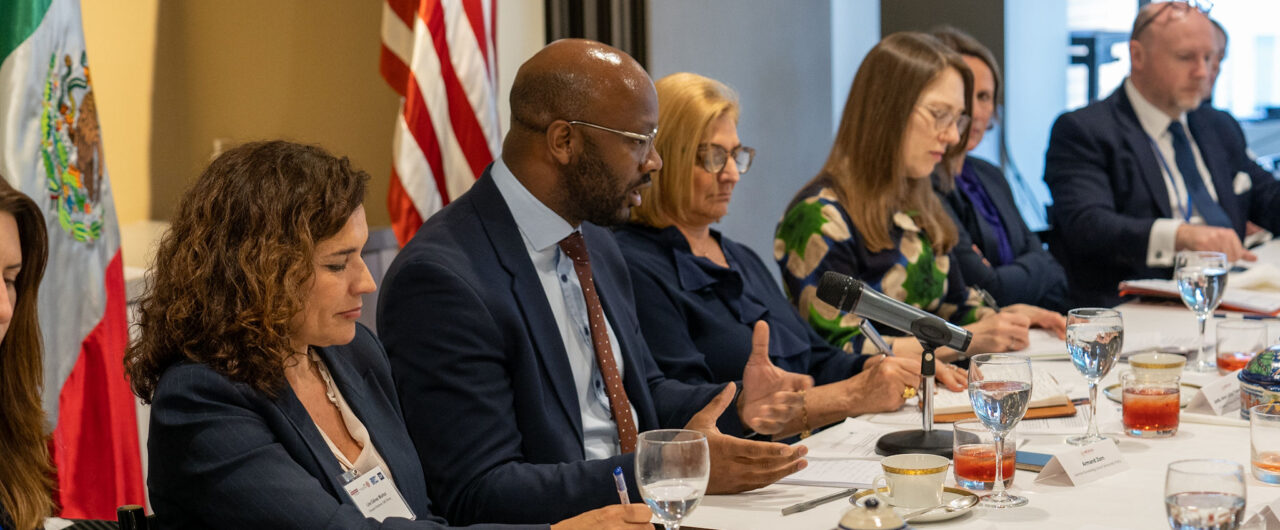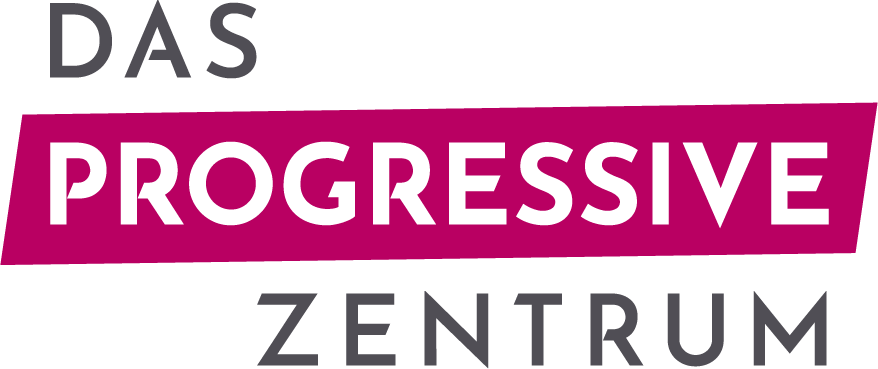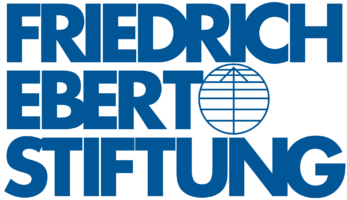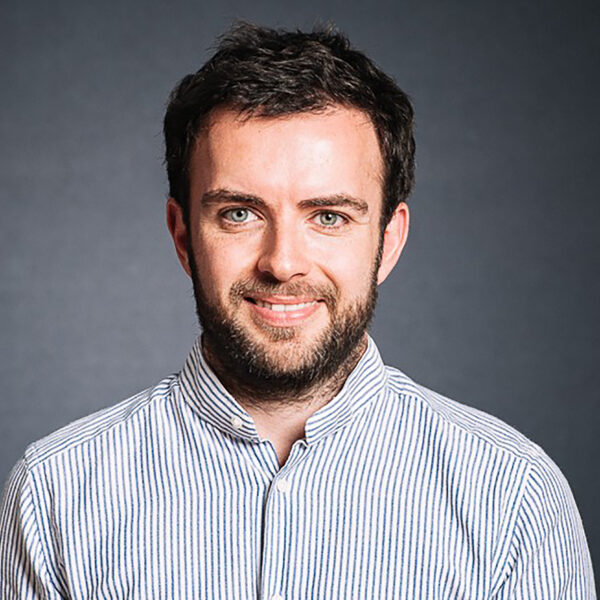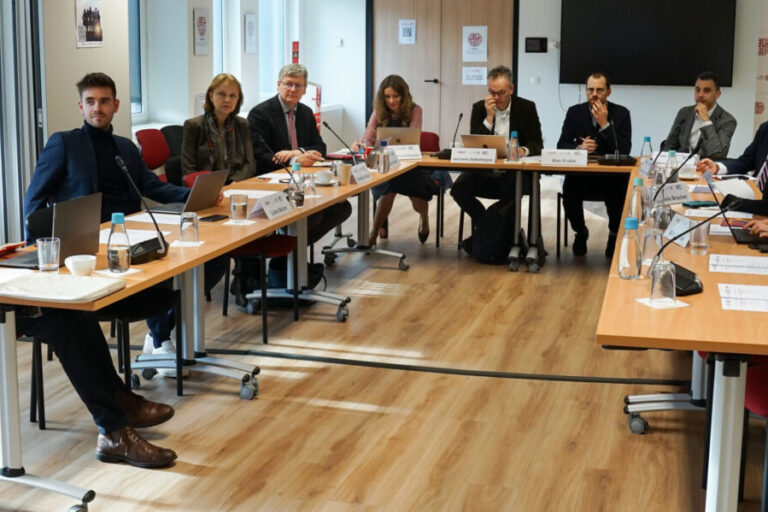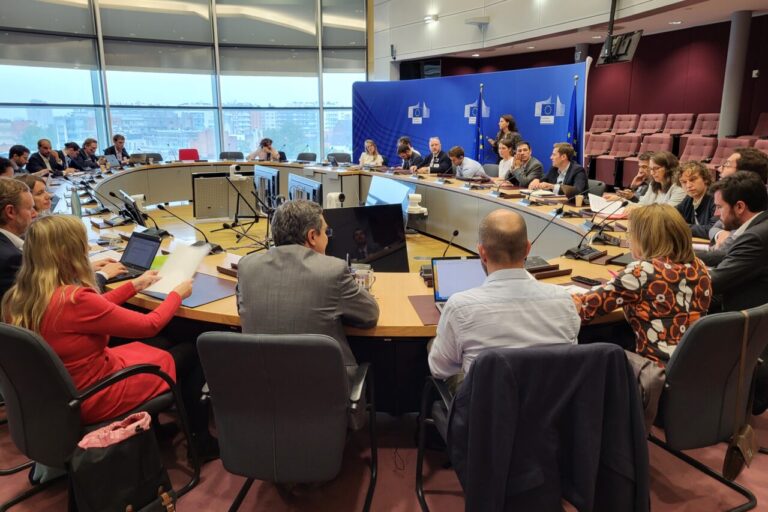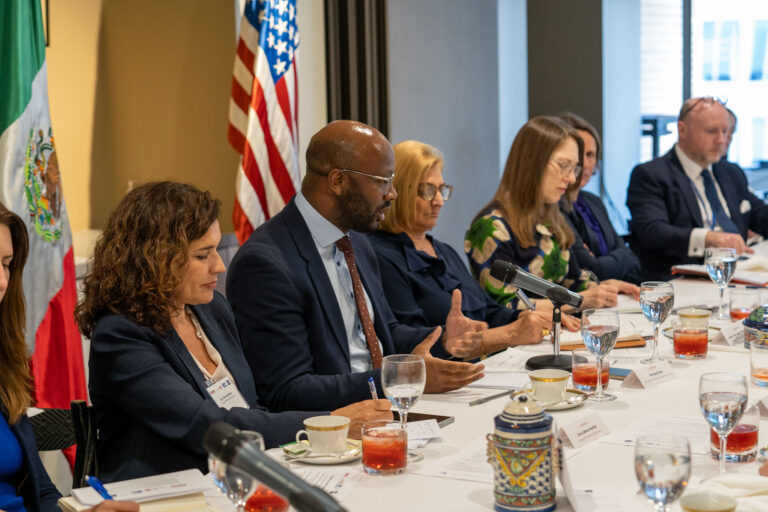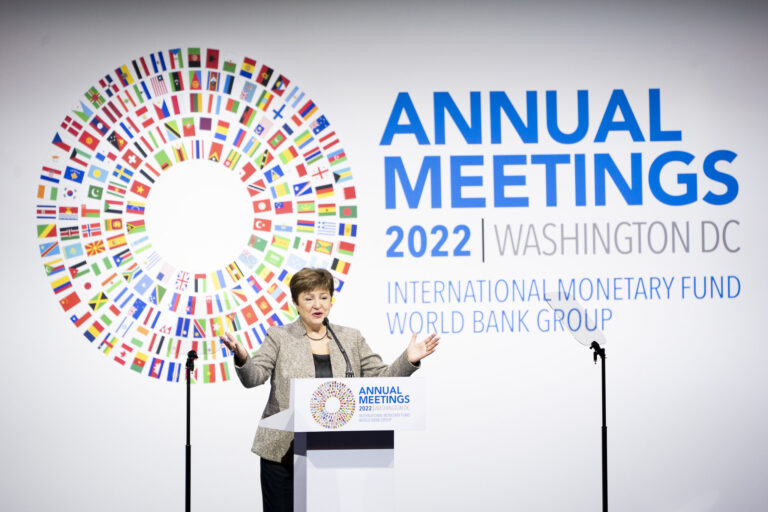On 12 April 2023, the Progressive Economics Network (PEN) met on the sidelines of the IMF Spring Meetings. The private meeting with Heather Boushey, Member of President Biden’s Council of Economic Advisors, was designed to exchange positions and best practices on how to shape a transatlantic approach to progressive industrial policy. PEN convenes senior economic advisors, experts and policymakers from the U.S. and Europe. This is a joint initiative of Das Progressive Zentrum, the Foundation for European Progressive Studies (FEPS, Brussels) and the Friedrich-Ebert-Stiftung (Brussels/Berlin), supported by the Center for American Progress (CAP, Washington, D.C.) and the Embassy of Mexico in the United States.
Following the signing of the US Inflation Reduction Act (IRA) in August 2022, industrial policy has become a priority for economic policymakers. The EU— which had already devised its own industrial policy agenda—has responded to the IRA with the Green Deal Industrial Plan, a package intended to upscale green technologies in the EU and strengthen Europe’s global supply chains.
The renaissance of industrial policy has been hailed by some as a new era of economic policymaking, where government policy and public investment support national industry. The aim of progressive governments is to facilitate the shift to a carbon-neutral economy, strengthen economic resilience and address social inequalities. Moreover, it is a huge opportunity for countries to provide private investors with the certainty needed to transform carbon industries. But many gaps remain and urgent policy questions still need to be answered.
The discussions were framed along three questions:
- How can progressive industrial strategies deliver cross-border synergies?
- How can social justice be hard-wired into their design?
- How can industrial policy be designed to align with countries’ broader economic strategies?
After a welcoming words by Amb. Ana Luisa Fajer Flores (Deputy Chief of Mission, Embassy of Mexico in the United States), co-hosts David Rinaldi (FEPS) and Michael Werz (CAP), Heather Boushey (Member of President Biden’s Council of Economic Advisors) gave insights into the reasoning and goals behind the provisions of the IRA as well as the administration’s legislation within the context of the American Recovery Plan, the Bipartisan Infrastructure Law and the Chips and Science Act. According to Boushey, a swift answer was needed to answer the challenges of a looming economic crisis that resulted from the pandemic, broader supply chain issues, the economic concentration of American firms, inflation, racial injustice as well as climate change.
The Biden administration designed the IRA first and foremost to be part of a wider shift in its economic strategy that attempts to reduce inequality, increase worker power, ‘build more things in America’ and reduce market power of entrenched players.
Subsequent to the remarks by Heather Boushey, Araceli Fernandez Pales (International Energy Agency, IEA) presented insights regarding the IEA flagship report Energy Technology Perspectives. The presentation stressed the need for an all-of-government approach towards the early phase of a new industrial age of clean energy technology manufacturing. Fernandenz Pales further highlighted the importance of boosting supply chain resilience and sustainability as well as developing industrial strategies that build on a mapping of domestic opportunities and identifying strategic partnerships.
The presentation was followed by spotlights from European capitals including Brussels (Lina Gálvez Muñoz MEP, Vice-Chair of the Committee on Industry, Research and Energy), Paris (Valérie Rabault Member of Parliament and First Vice-president to the French National Assembly), Berlin (Armand Zorn MP, German Bundestag) and Madrid (Head of Unit of Macroeconomic and Financial Policies Cabinet Office of the Presidency of the Government of Spain) on the current state of cross-border industrial and climate policy. Common to all perspectives was the necessity for a common European approach to industrial policy much alike the IRA, while views differed on how to reach this shared goal.
“If we’re not successful globally, we won’t be successful at all.”
Christian Büchter, Head of Climate Policy Division, Federal Chancellery of Germany
During the discussion among participants, it became clear that a paradigm shift towards progressive capitalism is needed. This shift includes fundamental investments in climate neutrality which are necessary on a global scale while ensuring fair trading rules and delivering on climate neutrality and social justice just as much for the global south as for the global north. Both private investments as well as calls for a common European fiscal policy were brought to the table as means to prepare for such an effort towards a new model of progressive capitalism which includes a paradigm shift in industrial and trade policy. Central to achieving this will be a strong transatlantic alliance and a dialogue with the Global South that leads the way towards a new climate-positive future, well-paid jobs and resilience of local industries and supply chains.
The private roundtable at the Mexican Embassy was part of a series of transatlantic meetings on 12 April 2023 in D.C., including a gathering of US and European experts and policy makers at the Centre for American Progress that discussed the implications of the new geoeconomic order on US and European trade with each other and partners worldwide. PEN will continue bringing together senior economic advisers and policy makers from the US and Europe in 2023 and 2024.
Based on the discussion in Washington, D.C., read the discussion paper on New Industrial Policy:
Photos: Ximenia Terraza
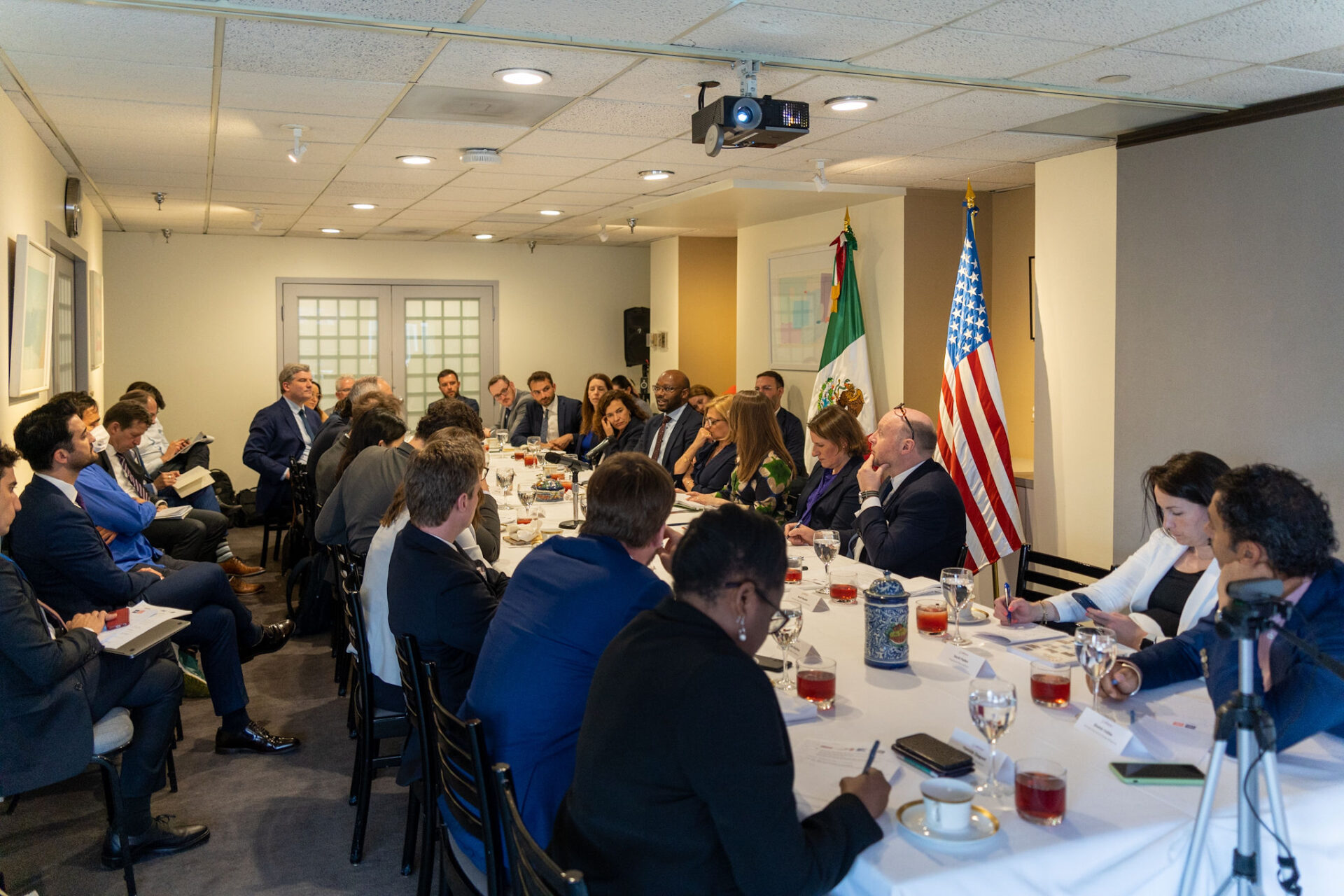
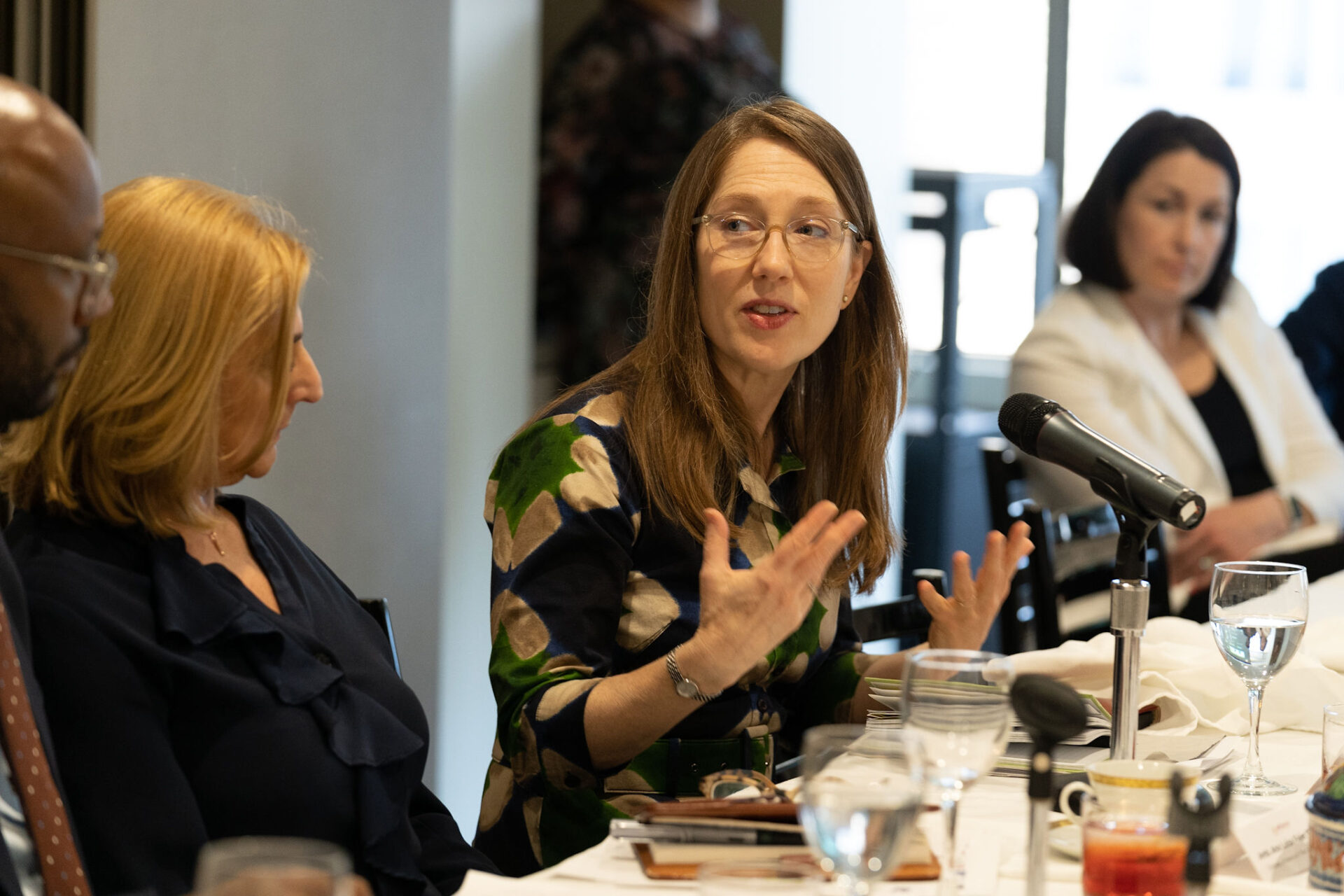
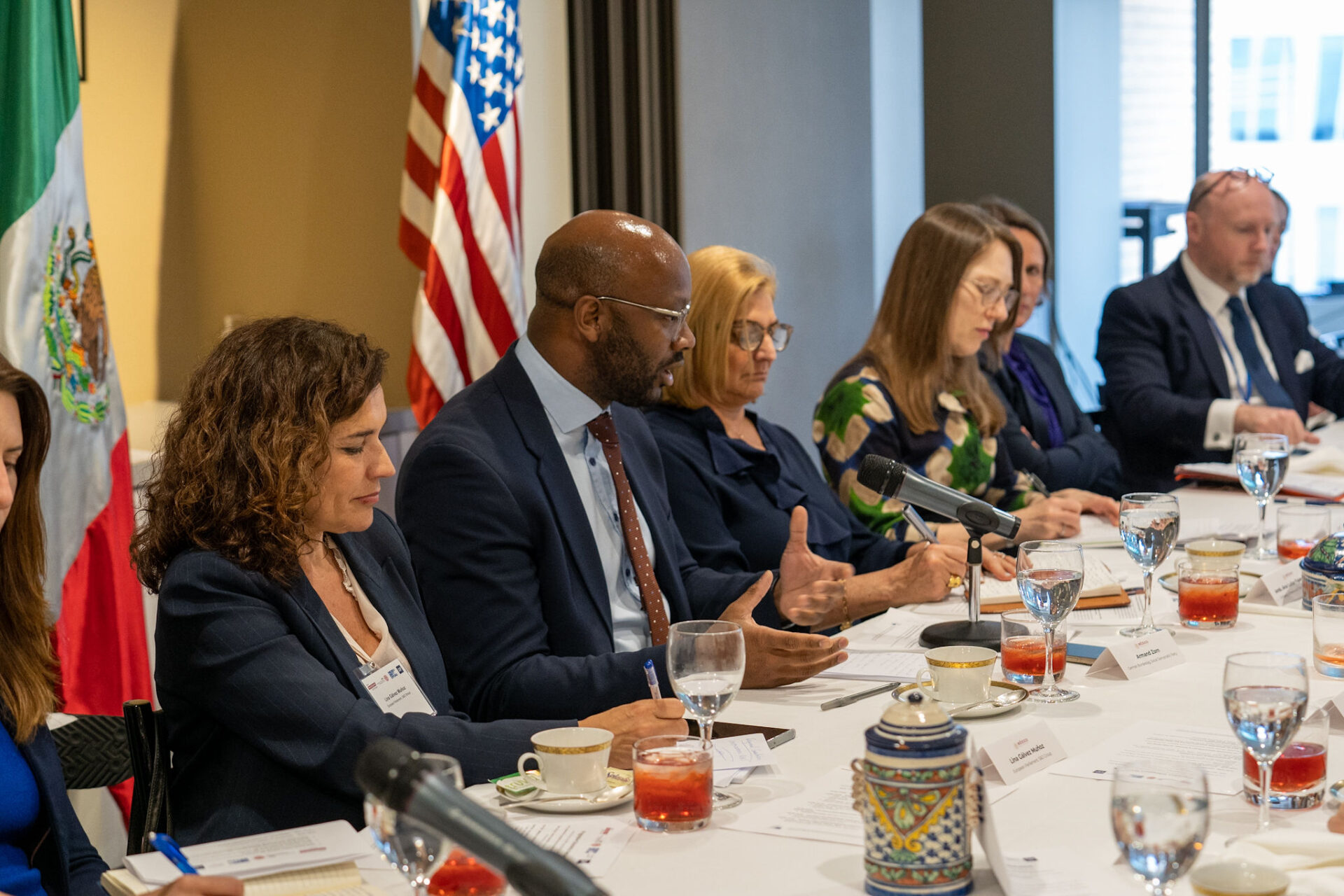


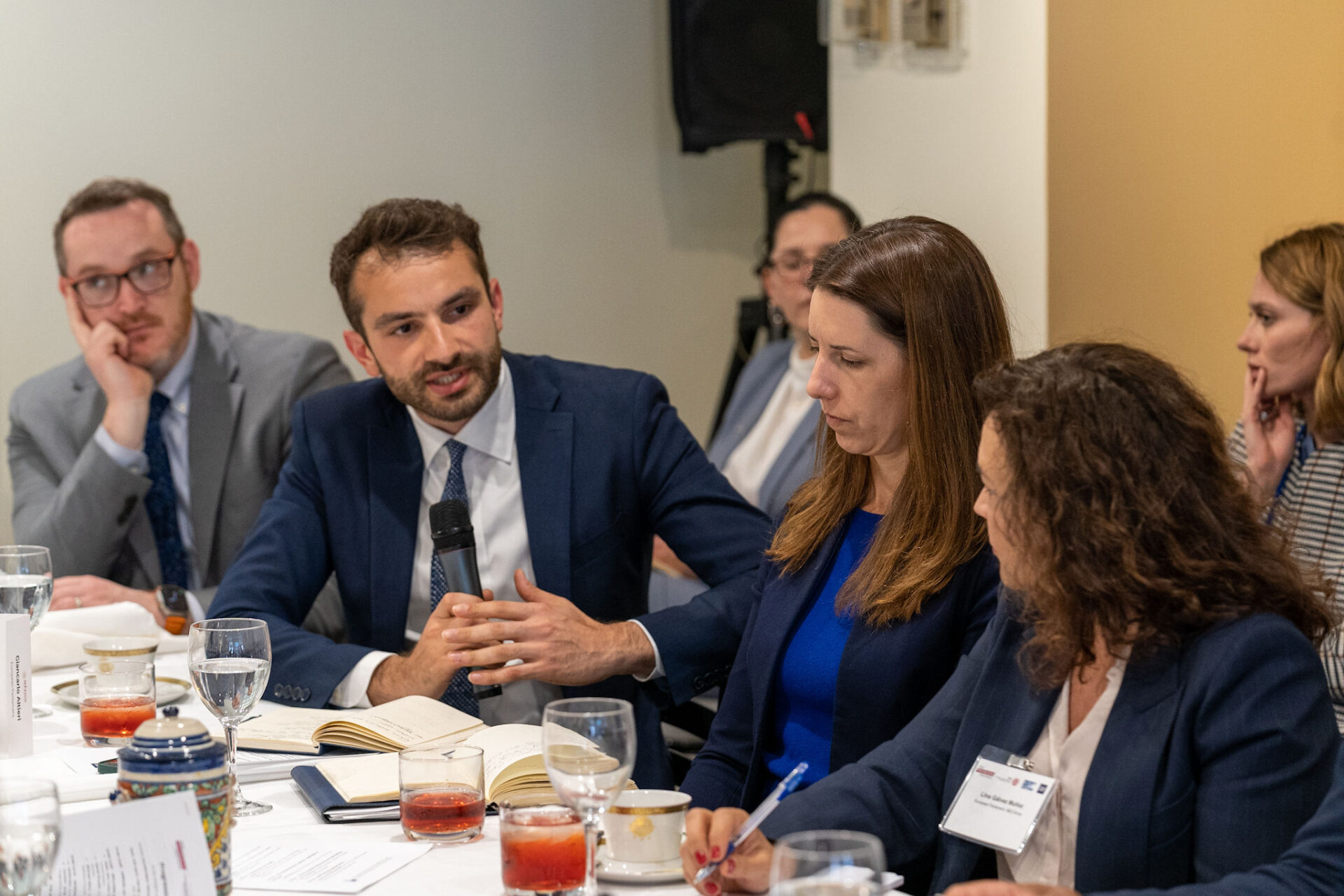
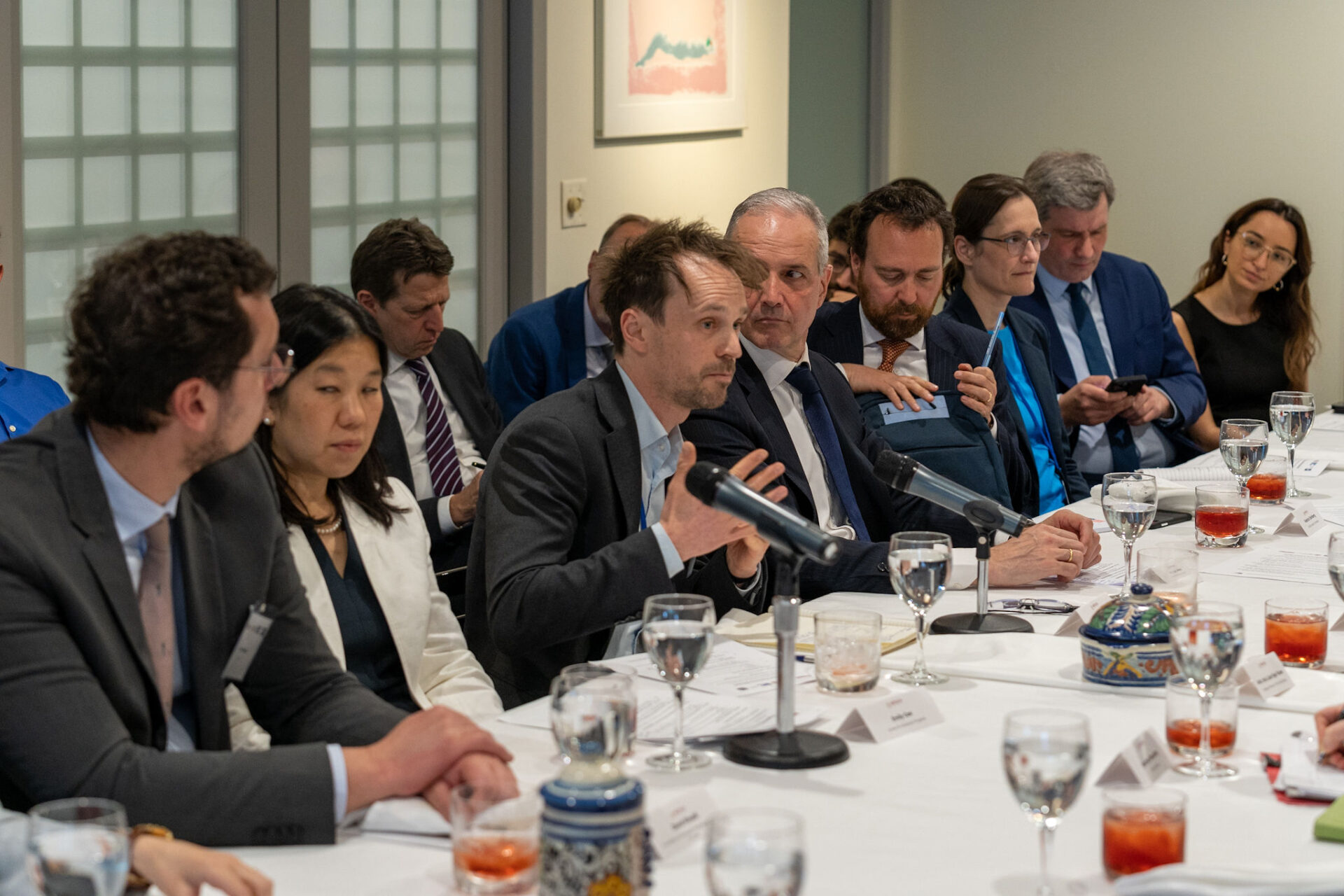
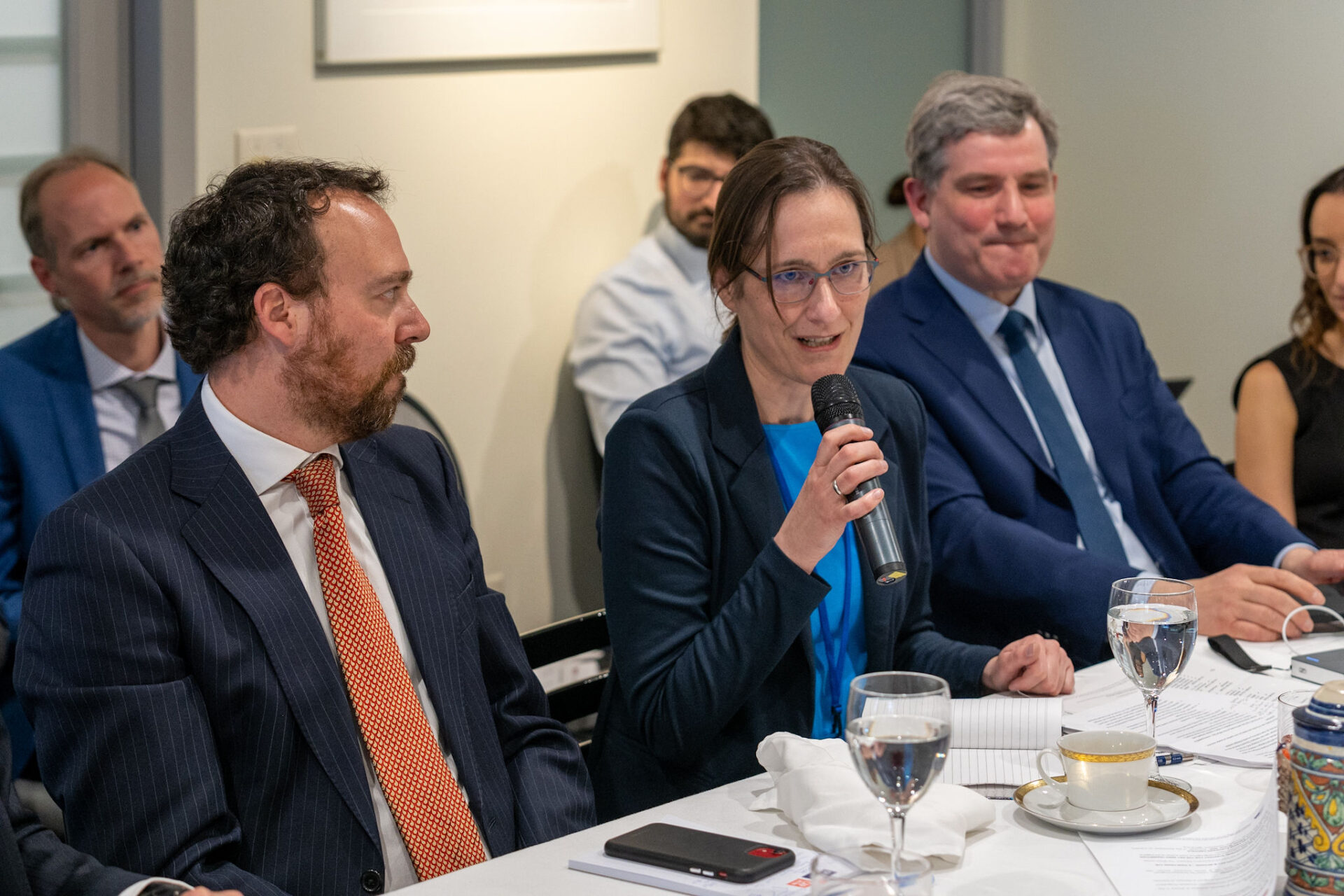
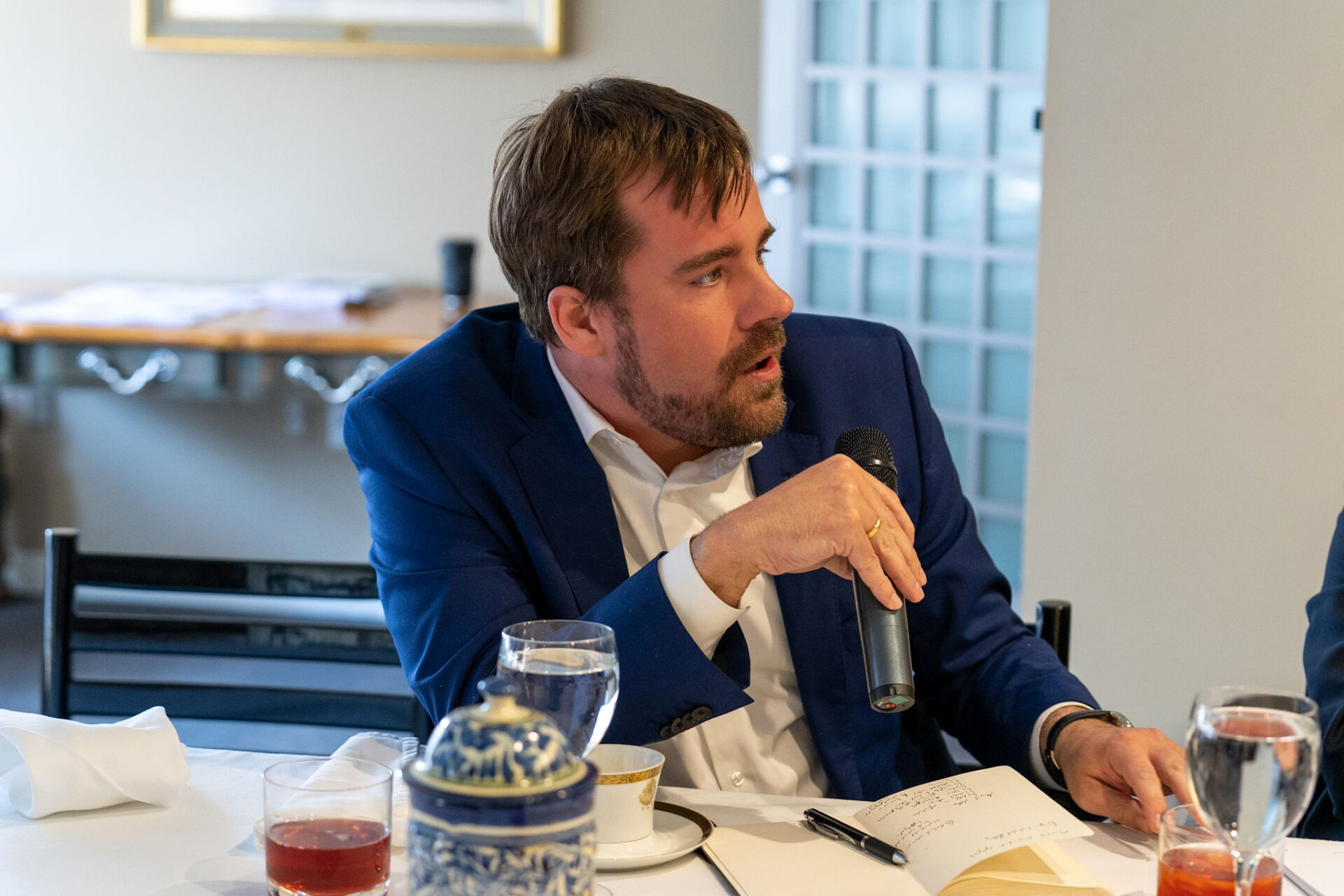
Co-Hosts of the Progressive Economics Network
Supported by
Authors
Previous Progressive Economics Network Meetings
Towards a progressive toolbox to deal with inflation - Progressive Economics Network Expert Meeting in Brussels
Getting the Green Deal Done: Progressive Economics Network meets in Brussels
Progressive Economics Network Meetings During IMF Spring Meetings in Washington, D.C.
Progressive Economics Network kicks off with pre-briefing for the IMF Annual Meetings

We develop and debate progressive ideas and bring together leading actors who turn thoughts into action. Our think tank’s goal: making the just transformation a reality. ▸ Learn more

